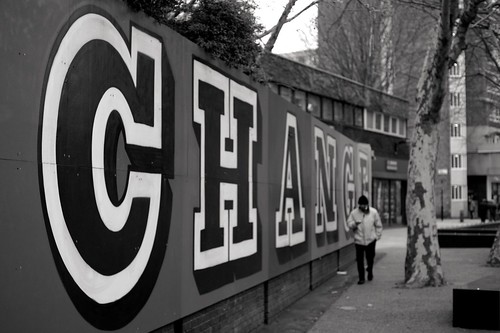The changing world of B2B customer experience and what the future looks like – Interview with Charlie Peters of Emerson
February 21, 2014Power to the customer – Interview with Matt Gorniak of G2Crowd
March 2, 2014
Back in October of last year, IBM released the latest version of it’s Global C-suite Study. This study was made up of 4,183 conversations with C-suite leaders in 70 countries and across more than 20 industries. Their analysis of the conversations uncovered three major issues that the C-suite executives feel they need to embrace if they are to stay relevant to today’s customers and remain competitive. The issues they identified were:
- They need to become more open to customer influence;
- They need to innovate if they are to effectively connect customer touchpoints across all physical and digital channels; and
- They need to work more closely with customers if they are to create engaging customer experiences.
This is all very interesting and gives a clear indication of the strategic priorities for these, and probably most, firms in the coming years. However, the study also went to say that organisations with a united C-suite are more likely to outperform their peers and their market.
This last idea was one that struck me as it has been echoed in a couple of recent interviews that I have conducted.
In one interview, Newvoicemedia’s Chief Marketing Officer, Tim Pickard, talked about how leadership in firms need to develop ‘One Agenda’ if they are to increase customer engagement and competitiveness. He goes on to say that the level of alignment of sales, marketing and customer service will go a long way towards determining the level and quality of customer engagement that they can achieve.
In another interview, Mark Lancaster, CEO of SDL, said something similar when he said:
“One of the biggest challenges for all firms looking to improve their customer experience is to align their senior team so that they are all focused on delivering the same objectives and are aligned to their brand and customers rather than their own departments.”
However, in the same interview Mark went on to comment that:
“When an executive team, in a large organisation, decides to do something and when it actually gets done can take up to two years.”
Now, I can understand how this would and could happen given the size and complexity of some large organsiations and their supply chains. But, given the level of competitiveness and pace of change that exists in most markets, Mark’s comment left me wondering if that pace of change was quick enough.
I mean, would you, as a customer, be willing to wait for up to two years to have the service and experience that you wanted delivered to you?
Similarly, would your customers be willing to wait for up to two years?
I’m not sure you, or they, would and that poses a strategic threat to many firms.
So, if the majority of firms are focused on and facing similar challenges, it would seem to me that the quicker a firm changes and adapts to market conditions, the more likely they are to win and retain the hearts, minds and spend of their customers. Right?
That leaves us with a question: Are you sure your customers will wait up to two years for you to change?
If yes, then that’s fair enough and that’s your choice.
If no, then you and your organisation need to learn how to change and change faster if you want to maintain and grow your market position.
This post originally appeared on Forbes here.
Photo Credit: Nanagyei via Compfight cc




9 Comments
No. Customers need you to change immediately. They are not willing to wait. Give them some waiting time and they will most likely go somewhere else.
Ivan, you may very well be right.
I would not bet on customers waiting for a firm to change. Loyalty can only stretch so far.
Adrian
A very interesting question Adrian, but I’m not sure it is the right one.
Are customers willing to wait – no they are not
But customers aren’t the issue for large organisations, competitors are the issue. If your competitors also take 2 years to change then you are probably OK.
So a better question is are your competitors willing to wait?
James
James,
I think you may be right and competitive pressure may be the catalyst to faster change.
Adrian
I agree with James. It’s one thing if two years is the industry standard, but if it’s not, then you’ll be left behind. Customers certainly don’t want to wait two years.
Annette 🙂
Whilst, I agree with you both that this may be the case. This poses an interesting question: do companies care more about their competitors than they do their customers?
Adrian
Good question. They shouldn’t, but I suppose in this case they should/will.
Hello Adrian,
I find myself in perfect agreement with James.
Where big enterprise flourishes it does so because it has, in the process, turned human beings from creators/producers to consumers. Which put bluntly means that most of us in the West have been conditioned to be lazy: to take that which is given to us.
So as James says the core question is not how long it takes a business to respond to customer needs. The core question is always to do with someone else coming up with a viable proposition at a reasonable price. Remember the music industry? How long had it known that customers only want to buy a small number of selected tracks from albums? A long time. Did the music labels do anything about this? No, they all stick with the existing way of doing things. And many years later the internet, file sharing services, and then Apple came along.
Never underestimate the power of the status quo: think about the Qwerty keyboard. We all use a suboptimal solution simply because we are all used to using it. It is the standard and standards are standards because they stick.
All the best
maz
Maz,
Thank you for that.
I tend to agree with what you are saying. However, similar to the question that I asked James and Annette, does this not then imply that, even though they might say otherwise, companies care more about their competitors are up to and that will have a bigger impact on their behaviour than will their customers?
Adrian